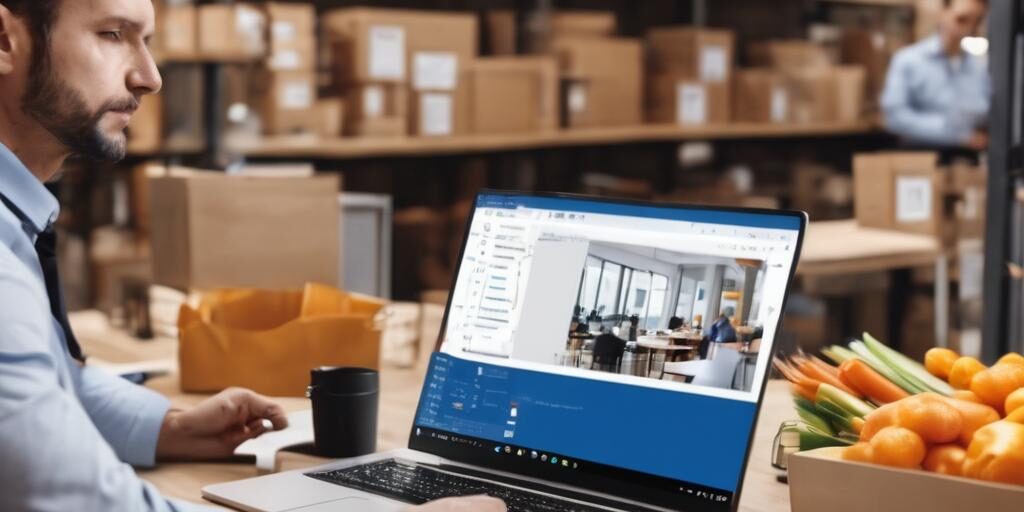What is an ERP system for manufacturing?
Definition: ERP is a comprehensive software system that integrates and streamlines core business processes across an organization. An ERP system for manufacturing spans various domains for your manufacturing work integrating finance, human resources, manufacturing, supply chain, services, and procurement. You will need to have an ERP system like Microsoft Dynamics Business Central or the specialized Armada Dynamics ERP with full functionality then include the add-on or extension that enables you to manage your manufacturing processes.
Are you in the process of selecting the optimal ERP solution for contract manufacturing or factory management software? The process requires a thoughtful approach. Here are key steps to guide companies in making an informed decision.
1. Needs Assessment
You will need to understand your specific requirements. Critical factors include production volume, complexity, scalability, and integration needs.
Identify the challenges you face as an organisation while using the current system. What is the pain point? What functionalities are critical for your success as an organisation? with this understanding, you have the basis for choosing the right ERP Solution for your business.
2. Industry Fit
There are several ERPs for the manufacturing Industry. You will need to seek ERP professionals with experience in contract manufacturing. If you are using Microsoft Dynamics ERP, SBC Dynamics ERP has experience and knowledge of installation of contract manufacturing needs. Our add-on comes with Industry-specific solutions with pre-built features tailored to your needs.
When choosing your ERP solution evaluate whether the ERP system can manage batch processing. In addition, you will need to consider traceability, and compliance requirements unique to contract manufacturing.
3. Functionality Evaluation
Prioritize essential features.
Depending on the needs of your factory management software and the pain points you identified, you should prioritize the critical features required for your operations.
Production Planning will the production management software be essential in generating accurate Bills of Materials (BOMs) for customized products?
Inventory Management. will the system help you to optimize stock levels and track raw materials? How essential is the manufacturing database software?
Quality Control, Can the system manage inspections and certifications?
Supply Chain Visibility: Does the addon provide end-to-end tracking?
Moreover, assesses additional functionalities like financial management, human resources, and reporting.
4. Scalability and Flexibility
For any Manufacturing automation software, scalability and flexibility are essential. Consider your growth trajectory. Will the ERP system accommodate expansion? You will need to evaluate customization options. Can you tailor it to your evolving needs?
5. Integration Capabilities
Your ERP or ERP modules should have seamless integration with existing systems (e.g., MES, CRM) is crucial. If you are using Microsoft Dynamics Business Central, the addon will not only work with your existing systems.
When choosing your manufacturing module, ensure the ERP can connect with suppliers, customers, and other stakeholders.
6. Cloud vs. On-Premises
Companies make decisions between cloud-based and on-premises solutions. Cloud ERPs offer scalability, accessibility, and cost-effectiveness. On-premises solutions provide control but require infrastructure maintenance. If you already have an onsite ERP, it will be appropriate to go for an ERP solution that works on-premise.
7. Vendor Reputation and Support:
Choosing an ERP vendor or service provider is a crucial decision. You will need to research ERP vendors thoroughly. Read reviews, assess their record, and consider customer satisfaction.
Assess their customer support, training, and ongoing maintenance services.
8. Total Cost of Ownership (TCO)
While the initial cost may seem attractive, it is essential to look beyond the initial license cost. Consider costs of customization, implementation, customization, training, and maintenance expenses.
You may calculate TCO over several years to make an informed decision.
9. User Experience and Training
For any system to be accepted and utilized your vendor must involve end-users in the selection process. Their feedback matters.
Additionally, assess the ERP’s user interface, ease of navigation, and training resources.
10. Security and Compliance:
Data security is critical. You need to protect your customer data, business secrets and employee data. Ensure the ERP complies with industry standards (e.g., GDPR, ISO). This will vary from region to region.
Evaluate disaster recovery capabilities.
Conclusion
Remember, the right ERP solution isn’t just about features; it’s about aligning technology with your business goals. Engage stakeholders, conduct demos, and choose wisely. Contact Us for the best Contract manufacturing ERP solution for your business. Contact SBC Dynamics ERP implementation of manufacturing add-on and extension on Microsoft Dynamics Business Central and Armada Dynamics software. Our team is experienced and excited to meet your manufacturing needs.
